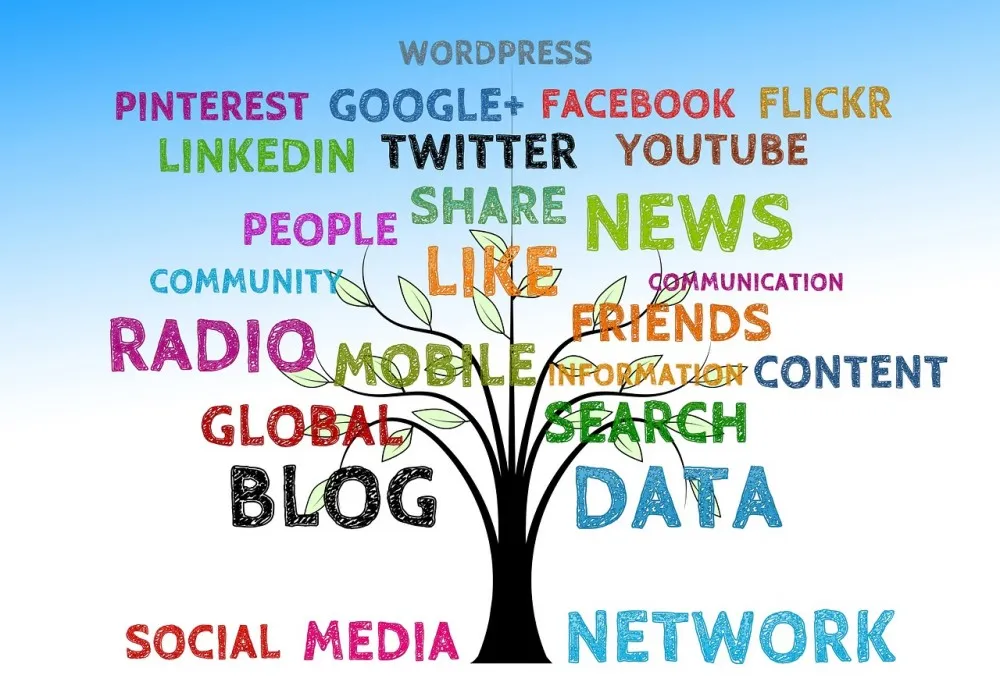5 Reasons Why Researchers Must Promote Themselves on Social Media
Elliot Lyons | Oct. 20, 2016
 Most of us are familiar with social media. We constantly hear about the latest controversial tweet from a celebrity on the news or read about how teenagers spend a great deal of time connecting with each other online through social platforms. However, social media isn’t just useful for celebrities and teenagers. It’s also critical to your career as an academic and should be used as a marketing tool to promote your research. Below are five reasons why researchers should be active on social media.
Most of us are familiar with social media. We constantly hear about the latest controversial tweet from a celebrity on the news or read about how teenagers spend a great deal of time connecting with each other online through social platforms. However, social media isn’t just useful for celebrities and teenagers. It’s also critical to your career as an academic and should be used as a marketing tool to promote your research. Below are five reasons why researchers should be active on social media.
1. Networking
Going to conferences is a great way of meeting potential collaborators and learning about research in your field. However, social media platforms, such as Twitter, LinkedIn and ResearchGate (which is specifically for scientists), will not only allow you to stay connected to others in your field after a conference, but they also allow you to quickly connect with new researchers that share your scientific interests. For example, social media is a great way to network with scientists in other countries who may not be able to attend the conferences that you attend. Thus, the potential for international scientific collaborations, which are often looked upon very favorably by grant agencies, is very high with social media presence.
Do you need professional editing for your grant proposal? If so, read about our
Professional Editing Service
.
Receive Free Grammar and Publishing Tips via Email
2. Exposure
Related to networking, social media allows others in your field to get to know who you are without the necessity of seeing you give a talk at a conference. Your next research collaboration could very well be the result of someone who read your bio on LinkedIn or left a thoughtful comment when you shared your recently published paper on Facebook. One way to more gain exposure is to start a Facebook or Twitter account for your research group to give updates on your recently published papers, conference presentations, awards that students in your group receive, awards that you receive, and pictures from group meetings and/or parties, which adds a human touch to your research.
3. Staying Relevant
Just because you’re an expert doesn’t mean your education is over. By networking and exposing others to your ideas and research interests on social media, you also open yourself to more opportunities to gain insights in your field. For example, another researcher that is in your field may post a paper that recently came out that you haven’t yet seen. Thus, in addition to sharing your own work, you also become aware of the work of others. This will keep your knowledge of the field fresh, which will make your research ideas more relevant and engaged in current research trends.
4. A Way to Promote an Ongoing Study or Acquire New Study Participants
This one may seem obvious, but social media is a great tool for carrying out research itself! Conducting a survey? You can easily distribute it on Twitter, LinkedIn, YouTube, or Facebook, which has more than 1.5 billion active monthly users. Just remember that conducting a survey in this way has its disadvantages and limitations. However, it can be a great way to distribute or promote an app that gathers research with the consent of the user, which could widen your dataset significantly. One great example is the NYU Baby Sleep Study that relies on data logged by parents in an app called Baby Connect.
Want to create a cool video or TOC image of your research? Check out our Illustration Service .
5. Teaching
Being active on social media is a fantastic way to understand how your students (graduate or undergraduate) engage with the world—what they think and care about and what they find interesting. Is there a good tweet by someone prominent in your field on something occurring in popular culture that relates to your field? Use it as a point of discussion in your next group meeting or lecture.
This is great—how do I get started?!
As with anything online, you should find the right platforms for your purposes. We suggest beginning with LinkedIn, which is a professional networking platform, and ResearchGate, which is specifically for researchers with university affiliations. LinkedIn has a great post feature that you can use to promote your research papers, and ResearchGate allows scientists to post updates and questions about research projects. Additionally, Twitter recently removed its character limit, making it easier to discuss research, and the platform has more than 310 million monthly active users, including many researchers and academics.
We encourage you to create one or more social media accounts for yourself and/or your research group. Then, please follow Falcon Scientific Editing on Twitter , Facebook , LinkedIn , and Google+ for updates and more articles on academic-related topics.
About the Author:
 Elliot Lyons is a freelance copywriter and editor living in the Netherlands. He writes on everything from international development to motivation. You can find out more about him and his work at
elliotcyn.com
.
Elliot Lyons is a freelance copywriter and editor living in the Netherlands. He writes on everything from international development to motivation. You can find out more about him and his work at
elliotcyn.com
.
Topics : Research Promotion
